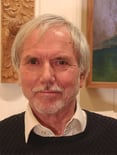We must rewrite psychology
Psychology needs to be rewritten, and the research focus must change if the goal is to develop scientifically robust and effective knowledge that can be used to treat mental disorders.
Why this claim? Because psychology is not sufficiently scientifically anchored. Research produces interesting knowledge about mental phenomena that tells little about how mental disorders are constructed mentally inside the head, what happens mentally when clients experience mental disorders, and how they can be changed with scientific certainty. Moreover, most clients could be treated more effectively, faster, and with better results today if we had knowledge of mental change that is scientifically anchored.
Psychologists know nothing precise about the mental material that causes mental disorders and what happens mentally inside the heads of clients when they develop or recover from a mental disorder. Many psychologists still do an excellent job. They are often warm, caring, supportive, and wise. Many psychologists and therapists are important to clients in many stages of life. It's not the people who are the problem, but the results of the research and the knowledge conveyed in books about mental disorders.
Brain research is facing the same challenges
The above also applies to brain researchers and neuropsychologists. One cannot derive scientifically robust knowledge about mental disorders only by researching the physical brain. Why not? Because a precise interpretation of the results of brain research presupposes a scientifically robust theory of the mental material that causes mental disorders. This is missing. The result is that research produces knowledge that is not precise enough and that cannot be immediately applied to treat mental disorders. There are exceptions, although I cannot focus on the exceptions here.
How much do we know?
Researchers know this. Therefore, they do as well as they can with the interpretative-based knowledge they have. The existing knowledge must be replaced or complemented with knowledge about the mental that is scientifically robust. It must deal with mental change since knowledge about what happens mentally when clients change through treatment is absent. This situation has led to the following question: How much do we know about mental disorders if we don't know how to change the mental material that causes the mental disorder? My answer is: almost nothing about what is necessary to know to treat mental disorders with scientific certainty.
When science became and obstackle for developing of science
Many are aware of the limitations of psychological knowledge, but at the same time, many will argue that it is impossible to research emotions and mental disorders as they occur inside the head only by using language. A consequence of this view is that researchers are silent or critical when I convey that this is possible and necessary if we are to develop scientifically robust, effective, and precise psychology and treatment of mental disorders. The attitude that it is impossible to research emotions as they are experienced inside the head hinders the development of research that could lead to certain knowledge about mental disorders and about treatment. I am not writing this to be arrogant, but to be honest. Psychology is based on some erroneous notions, call them paradigmatic perceptions that prevent what is most desired of all, that psychology should become as knowledge-based, scientifically anchored, and respected as medicine.
Do we need more research
I seem to hear some say: We need more research to prove this. No, we don't need more research to prove these claims. We can already today prove that it is possible to develop sufficient scientific knowledge about mental disorders and about treatment just using language. This can even be done through logical analysis, independent of empirical research.
We have found the answers
The next pertinent question is: How can you explain or prove these claims? To answer, I must go back a little in time, to around 1990. Then I had some therapeutic experiences that were so good they shouldn't have been possible. Just one example: A severe and life-destroying post-traumatic disorder was cured in 45 minutes, of which 10 consisted of mapping. During the same period, I had several similar experiences. After extensive literature studies, the conclusion was negative. Psychology or psychiatry could not provide scientific explanations for what had happened to the clients. I therefore left the literature and returned to my clients and the therapeutic processes.
The answer to questions such as how mental disorders were mentally constructed, and what happened mentally when clients got better from treatment came in 2001. The answers came after 9 years of analyzing what happened mentally with clients during consultations. After 9 years of analysis, I found the answers to the questions of how the mental disorder was mentally constructed and what happened mentally when clients got better from treatment. The only method I had used was words and language.
I found the answers to psychology's most important therapeutic and scientific challenges more than 20 years ago. Psychology and psychiatry are still standing still. They still lack a scientifically robust knowledge base. This is tragic because it affects people who suffer and who experience extensive mental pain daily. Most could get help faster and more affordably.
The next pertinent question is: But why haven't you communicated this earlier? I have tried many times. I have around 17 rejections of research funds, including 3 rejections of being accepted into the doctoral program from my own institution. The rejections come from the research council and other research institutions. In addition, there are rejections from newspaper editors regarding articles, from 5 publishers, and in the form of critical letters from brain researchers and professors. The only possibility to survive as a researcher eventually became to research in solitude.
Why telling this now?
But why are you communicating this now, one might ask? Because I have now reached a level of knowledge where my research can no longer just be refuted or isolated. Because scientifically robust knowledge about mental disorders and about mental change is necessary if psychology and psychiatry are to be further developed as subjects, because the psychologist and research must change because these subjects still produce knowledge that is not scientific about mental disorders, if the goal is to change the mental disorders, because clients can get much better faster, and because society can save extensive amounts by more effective treatment and more change-relevant knowledge.
What, among other things, must be said aloud, and possibly criticized, discussed, and researched, is the following:
• Psychology and psychiatry know nothing about what happens mentally inside the head when clients have a mental disorder and nothing about what happens mentally with clients that can be observed when they get better from treatment. • Mental disorders and mental change are simpler than psychology and psychiatry convey. But one must distinguish between knowing what to do and the extensive work that is sometimes necessary. • Mentally caused mental disorders are constructed of the same mental material. It is this material that must be changed for a change to occur in treatment. • It is more appropriate to assert that there is only one mentally anchored mental disorder and one method that can change all mental disorders than to assert that there are between 300 and 400 different mental disorders, something that is conveyed in the international diagnostic systems ICD 11 and DSM V, and that there are a few hundred different approaches to treatment. • All therapeutic traditions are based on interpretations of the mental, including those that use quantitative methods and laboratory experiments. • Conditions such as mental disorder, skill, and mental surplus are mentally constructed of the same mental material. Therefore, the similarities between mental disorders and the ordinary mental state are of greater interest than the difference between these conditions. • There is a mental phenomenon, bio-psychic unity, and elements, that stores all mental disorders and that must be changed for a change to occur through treatment. • It is possible to research mental states and the experience of mental disorders just by using language, and one can achieve scientific knowledge about mental disorders and about mental change faster through language than through brain research. • The subjects of psychology, neuropsychology, and brain research can become more scientifically robust if one has a scientific understanding of the connection between language and emotions.
The scientif litmus test
Finally, if one doubts the claim that psychology lacks a sufficiently scientific knowledge base, one can ask the following question: What happens mentally inside the head of a client who does not get results from treatment even though one has used the same method and has gotten good results with more than 100 clients with the same method? If the person you ask can answer precisely and demonstrably to this question, he or she has sufficiently scientifically anchored knowledge about mental disorders. If the person cannot give a documentable scientific answer, he or she lacks scientific knowledge about the cause of and experience of mental disorders and thus also a scientific basis for treating mental disorders predictably and precisely.
Keep up with the good work and alter the other
When this is formulated, there is of course a lot of good and a lot of warmth, insight, and wisdom about mental disorders. It's just not enough when people with mental pain don't get better or well from treatment. One must analyze psychology and psychiatry, keep what works, and change what doesn't work so well.


philipdammen4@gmail.com
(+47) 94294327
Socials
Contact
Philip Dammen, Dr. Philos
Founder of IKON / researcher, therapist, and emeritus assistant professor in pedagogy at the Norwegian Academy of Music


